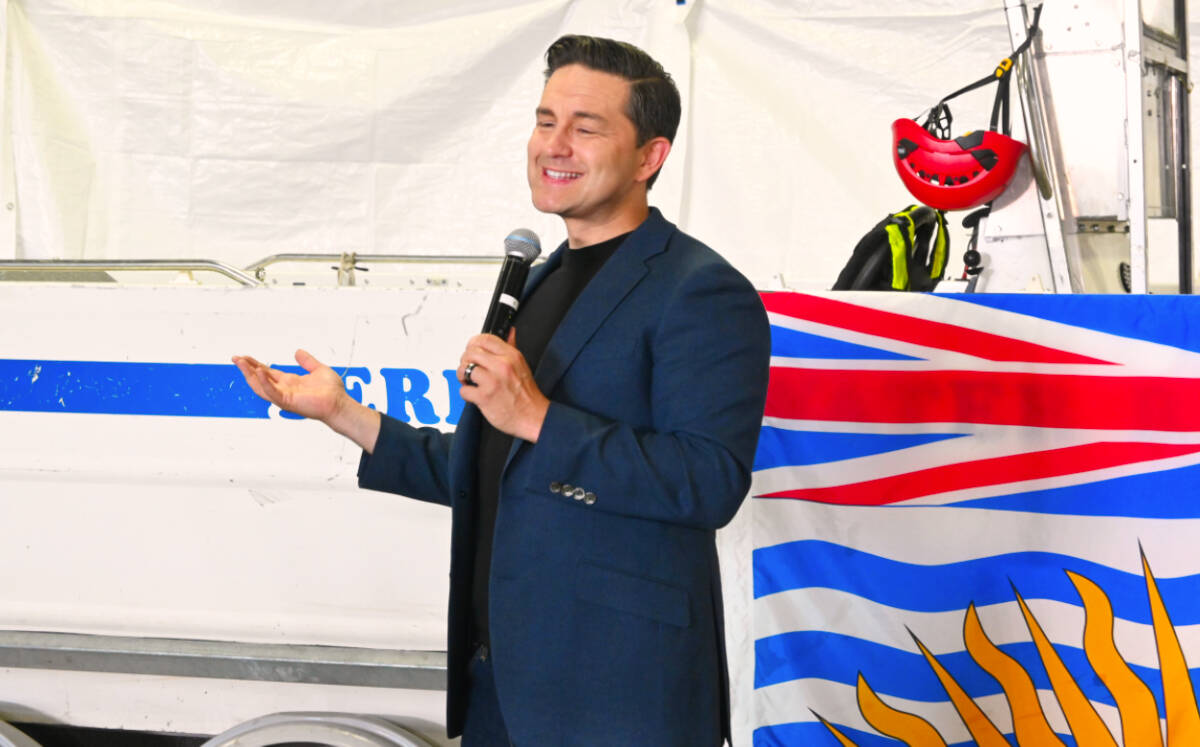~BW Uzelman
Pierre Poilievre has everything going his way right now. He is talking about the crucial economic issues of the 2020s, and is no longer being sidetracked by the far right issues. Gone are the misplaced concerns for the convoy, much of the populistic rhetoric and firing the Governor of the Bank of Canada. The continued negative references to the World Economic Forum are a bit of a head scratcher. Only people on the hard right and the conspiracy theory types care about that stuff. But then Poilievre, in his leadership bid, attracted the rightist, freedom types to the party.
Today, Poilievre is much more disciplined than he was before his recent makeover. Throughout his political career, he has been extremely partisan and aggressive. He continues to claim Justin Trudeau has created all problems, though there is no need to embellish the serious Liberal missteps. But Poilievre has moderated his attacks on the press. He is even evoking “hope” now. Everything, apparently, is not irretrievably “broken”. He portrays himself as a family man, and emphasizes “common sense” policies. A pragmatic crusader has supplanted the back-alley brawler. It’s a much better look.
Poilievre must not return to his past ways. He should appreciate that both his and his party’s rise in the polls is as much about a negative response to a Prime Minister and a Liberal Party who have lost touch with reality and Canadians, as it is about a positive response to Poilievre’s Conservative message and his persona. A September 14 poll from Abacus Data showed that Poilievre eked out a net favourable impression of 1%, while Justin Trudeau continued to tumble, now at a net favourable rating of -29%.
The Liberals are incapable of recognizing Canada’s significant problems and developing suitable policy to mitigate them. Policy responses have to be extracted from the government by the opposition, press or public. The Liberals seem to be incapacitated by recent economic events. The Abacus poll reflects this with a vote intention of 41% for the Conservatives, 26% for the Liberals and 18% for the NDP. The Tories topped the poll in all provinces but Quebec, in every age category and amongst both men and women.
The Liberals have not competently addressed major issues, certainly not those revealed in recent polls. Angus Reid found 62% of Canadians chose Cost of Living/Inflation as one of the three most important issues, 41% chose Health Care, 33% Housing Affordability and 27% Environment/Climate Change.
Poilievre has been criticized for offering simplistic solutions. At least, he appreciates the real problems, or some of them. But he will have to offer much more substance. His policy agenda is very thin. Many issues are barely mentioned, and details on policy proposals are scant. If he continues to raise concerns without offering substantive solutions, voters may become skeptical of his message. Understandably, he is wary of providing the Liberals a target, but to limit details allows the Liberals to frame the Conservative policies. Comprehensive policies to address voters’ greatest concerns could firm up Tory support.
Cost of Living. Poilievre has been firmly focused on inflation. He has linked it with the Liberals’ excessive spending. If elected, he will almost certainly cut the public service, and may freeze expansion of publicly paid dental care and pharmacare. While inflation is now declining, serious damage to affordability is already locked in. The solution is to expand investment and productivity to increase personal income. An insightful leader would champion policy to achieve this. It could rebuild prosperity for Canadians.
Healthcare. Poilievre has said little on the topic. He has recommended a national competency test for foreign trained medical professionals to allow them to work across the country. He has also contended healthcare is under provincial jurisdiction, and must be managed by the provinces. That is true, but the Canada Health Act has seriously restricted provincial autonomy in healthcare. Effective reform is likely impossible within current federal limitations. The crisis in healthcare necessitates reform of the act.
Housing Affordability. Poilievre has smartly focused on this issue over the last 18 months. He has pledged to reduce federal funding for municipalities that do not increase housing starts by 15%. A new Conservative housing policy called for elimination of the GST on new rental apartment construction (like the Liberals) amongst other measures. These actions are likely not sufficient, but are positive.
Climate Change. The Conservative Leader’s climate policy is sparse. He says he will combat climate change with technology, while killing the carbon tax. This is troubling. Technology won’t magically embed itself in the economy. Taxation, incentives and/or regulation are required.
Poilievre and the Conservative Party have come a great distance. They have replaced low to mediocre poll numbers with impressive ones. To secure these gains, they must address issues Canadians deem most important. Extensive, common sense, conservative policies are necessary. The CPC can’t be timid.
bruce
Bruce W Uzelman
I attended the University of Saskatchewan in Saskatoon.I obtained a Bachelor of Arts, Advanced with majors in Economics and Political Science in 1982.
I have maintained a healthy interest in politics throughout my adult years, and wish to put that and my research skills to work as a political columnist.
Contact: urbangeneral@shaw.ca

